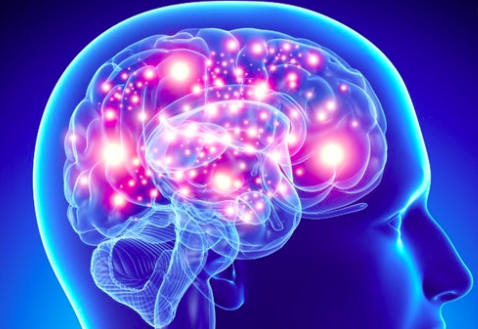
by admin | Nov 18, 2022 | Stem Cell Therapy, Alzheimer’s Disease, Stem Cell Research
Alzheimer’s disease (AD) is the most common cause of dementia, accounting for an estimated 50%-70% of dementia cases worldwide. Characterized by memory loss and cognitive impairment, AD is progressive, debilitating, and fatal. In addition, it’s estimated that new cases of AD around the globe are occurring at a staggering rate of 20 per minute with an established effective treatment yet to be discovered.
To date, research has demonstrated an advanced understanding of AD’s development and devastating – and eventually fatal – outcomes, but has only been able to identify drugs that intervene too late in the progression of the condition.
Considering that stem cells have a detailed and documented record of their ability of self-renewal, proliferation, differentiation, and transformation into different types of central nervous system neurons and glial cells and that they have been successful in AD animal models, it is believed that stem cells have the potential to treat patients with AD.
In reviewing the progress of stem cells as a potential therapeutic treatment for AD, Liu et al. call for new treatments, including the removal of toxic deposits and the ability to replace lost neurons to be developed and as a way to stimulate neural precursors, prevent nerve death, and enhance structural neural plasticity. The authors also review the pathophysiology of AD and the application prospect of related stem cells based on specific cell types.
Liu et al. point out that, although AD models using animal research have been demonstrated to be successful, animal research is difficult to translate into human trials, and, to date, none have been able to replicate the complex environment observed in the human brain. Considering this, the authors conclude that it is challenging, at best, to characterize the beneficial effects of stem cells in AD based solely on previously conducted animal models.
As a result of this review, the authors also conclude that while stem cells used in AD and animal models have achieved certain results, there are still several factors that require consideration. Among these factors is the fact that this type of stem cell therapy requires neurosurgical procedure and immunosuppression which contributes to ongoing concerns related to controlling the proliferation and differentiation of stem cells, the targeting of molecular markers, and the development of cell delivery systems.
The authors acknowledge that progression in the study of stem cells in AD applications should be made more efficient because of recent technological advances in stem cells, specifically using hydrogels, nano-technology, and light therapies to produce more efficient delivery of treatment.
While these advances should help, Liu et al. also point out that a number of obstacles, including uncertainty about the amyloid hypothesis, differing objectives related to preventing progression vs symptomatic treatment, and demonstrating the relationship between stem cell treatment and complete AD cure, still need to be addressed.
Considering the findings of this review, the authors conclude that stem cell therapy for AD carries enormous promise, but the successful application will most likely be dependent upon consistent early diagnosis of the condition in order to prevent further brain cell deterioration and will likely be combined with an administration of existing medication as a way to most effectively treat and/or prevent AD.
Source: Mesenchymal stem cell-based therapy for autoimmune diseases.” https://pubmed.ncbi.nlm.nih.gov/30623280/.

by Stemedix | Oct 10, 2022 | Alzheimer’s Disease, Stem Cell Therapy
Alzheimer’s disease is one of the most prevalent neurological conditions in the world, affecting more than 5.8 million people in the United States alone. While millions of people suffer from the condition, not everyone understands how Alzheimer’s really affects the brain. So how does Alzheimer’s affect the brain? Keep reading to find out!
How Alzheimer’s Impacts Your Brain
Alzheimer’s is a progressive neurological disease that results in damage to the brain. Alzheimer’s attacks the regions of the brain that are responsible for memory and language. This leads to severe memory loss and other cognitive symptoms.
The exact cause of Alzheimer’s is still largely unknown, but it has been linked to the buildup of plaque within the brain. It is also thought to be genetic in some cases, affecting multiple people from the same family.
Symptoms of Alzheimer’s
Treating Alzheimer’s relies heavily on an early diagnosis. In order to detect the disease as early as possible, you should be on the lookout for signs and symptoms that could indicate changes within the brain. The following are some of the most common signs of Alzheimer’s disease:
- Difficulty completing familiar tasks
- Unable to recall everyday information
- Getting lost in familiar locations
- Frequently misplacing things
- Mood swings and extreme behavioral changes
- Uncharacteristic decision-making
- Difficulty with finances
- Sudden poor hygiene or unkept home
While these symptoms can sometimes be attributed to mental health disorders like depression, they are often indicators of Alzheimer’s disease, particularly in older individuals. When you notice these signs in yourself or a loved one, being evaluated by a neurologist as soon as possible is vital for successful treatment.
Treating Alzheimer’s Disease
The way Alzheimer’s disease is treated has evolved in recent years. In the past, there were very few options in terms of slowing the progression of Alzheimer’s. Patients and their loved ones relied on behavioral intervention and other therapeutic approaches to cope with the symptoms of the disease.
Thanks to recent research, now there may be alternative options to help slow down the progression of Alzheimer’s and reduce the severity of symptoms.
One innovative approach involves regenerative medicine, also known as stem cell therapy. A patient’s own stem cells could potentially be used to heal the damage that Alzheimer’s causes to certain areas of the brain. Stem cell therapy also provides regenerative properties that could produce new neurons, replacing any damaged cells within the brain.
Research on stem cells as a treatment for Alzheimer’s is ongoing, but studies have shown that the approach is most effective when a patient is in the earlier stages of the disease. To learn more about ” How does Alzheimer’s affect the brain? ” and the options available at Stemedix, contact a care coordinator today!

by Stemedix | Jan 11, 2021 | Alzheimer’s Disease
If you or a family member has been diagnosed with Alzheimer’s, you’re not alone. More than 5 million people in the U.S. are living with some form of dementia. While receiving the diagnosis is difficult, there are still factors within your control, including how you decide to move forward. Here are some considerations as you adjust to a new diagnosis and things to keep in mind when adjusting to life With Alzheimer’s Disease.
Allow yourself an emotional response.
Some people jump right into practical steps for managing Alzheimer’s Disease by exploring treatment options. With that being said, it’s important to make space for the emotions you may be experiencing. Whether you’ve been diagnosed or it’s someone you love, you’re likely to feel a wide range of feelings. These are normal, and give yourself grace as you feel them. Some common emotional responses include denial, shock, anger, fear, and sorrow.
You could find yourself feeling several different emotions at once, or going through a cycle in which you feel them repeatedly. There’s no right or wrong way for them to appear, and everyone experiences them differently.
As you go through these feelings, here are some strategies that may help you promote emotional wellbeing:
- Journal
- Turn to support groups, either in person or online, or a counselor
- Maintain social interactions with loved ones
- Learn as much as you can about Alzheimer’s to make informed decisions
- Set up plans for the future now to alleviate future challenges
Support your physical wellbeing.
While Alzheimer’s leads to cognitive impairment, you’ll still want to focus on your physical wellness. For example, get routine checkups to ensure your hearing and vision are still strong, as sensory impairments could exacerbate symptoms such as confusion.
Exercise can also help keep you active and physically well, and there is also evidence to suggest physical activity can improve a person’s ability to perform activities of daily living (ADLs) in people with dementia. Be sure to follow a well-rounded diet to give your mind and body ample nutrients as well. Some foods, such as berries, leafy greens, nuts, and fish, appear to have cognitive benefits.
Additionally, give your brain a workout, too. Do crosswords, Sudoku, or other puzzle games to exercise your mental abilities, too.
Stay socially engaged.
Social interactions have a beneficial effect on several key brain functions. Thus, while you may feel tempted to withdraw from loved ones, it’s important to stay socially active. If you’re the loved one of a person who has recently been diagnosed, be sure to learn as much as possible about symptoms and behavioral changes so you know what to expect. Or, if you have Alzheimer’s, seek support groups in which the whole family can learn so everyone is on the same page. This can help to facilitate strong family support.
Of course, socializing outside the family is beneficial, too. The Alzheimer’s Association website lists support groups that meet regularly. Many people find it helpful to meet with others who have a firsthand understanding of the challenges they’re facing.
Implement strategies to ease your routine.
There are several tips you can try to help you maintain your confidence. For instance, tactics such as carrying a notepad, keeping a list of phone numbers near your phone, and maintaining a written schedule for each day are memory aids that can help you stay on track. You can also use devices like pillboxes to keep track of medication. Don’t hesitate to ask for assistance with certain tasks when needed, too. Simply having someone remind you of important events could be helpful. If you are interested in learning more about life with Alzheimer’s Disease then Contact us today!

by admin | Oct 16, 2020 | Alzheimer’s Disease, Stem Cell Research, Stem Cell Therapy
Alzheimer’s disease is the most common form of dementia. Among other symptoms, Alzheimer’s disease causes memory loss as nerve cells in the brain become dysfunctional and die. While the disease is known to be related to the accumulation of β-amyloid plaques and neurofibrillary tangles, how and why those things happen is still a mystery. Nonetheless, researchers have created and tested drugs to change the way the brain process β-amyloid and hyperphosphorylated tau (the substance in neurofibrillary tangles) but nothing, so far, has worked in humans. Instead, we are left with anticholinergic drugs, and memantine used to slow the progression of the disease.
These failures of drug development have forced scientists to reconsider how to treat Alzheimer’s disease. Instead of a focus on neuropathology that we cannot understand or control, why not focus on supporting nerve cells that remain or even restore the nerve cells that are lost? This is the hope of stem cell research in Alzheimer’s disease, and the focus of an extensive review article on the subject.
The review article describes the clinical possibilities of different types of stem cells:
- Neural stem cells (NSCs)
- Mesenchymal stem cells (MSCs)
- Induced pluripotent stem cells (iPSCs)
Neural stem cells (NSCs)
NSCs have the magnificent ability to become any type of brain cell, be they neurons or various types of glia. NSCs would be the ideal stem cell treatment for Alzheimer’s disease except for one major problem: There are very, very few NSCs in the human brain. It is nearly impossible to harvest them in high enough numbers and, right now, we don’t have ideal ways to make them multiply and grow in a laboratory. So, while research in NSCs for the treatment of Alzheimer’s disease is well underway, they won’t be widely available any time soon.
Mesenchymal stem cells (MSCs)
Mesenchymal stem cells can become many different types of cells and can be harvested from many places including bone marrow, umbilical cord, and adipose (fat). MSCs are very versatile, and we are improving at safely using them in various diseases, including Alzheimer’s disease. MSCs are one of the more exciting avenues of research in Alzheimer’s disease and other neurodegenerative diseases.
Induced pluripotent stem cells (iPSCs)
iPSCs are a remarkably interesting type of stem cell. They are stem cells that are created by reprogramming cells found in the skin (fibroblasts) to become other cells of interest. Researchers take fibroblasts and genetically alter them to behave like other types of stem cells or fully differentiated cells. Recent work has shown that scientists can repurpose iPSCs to become neural precursor colonies, which are a lot like NSCs described above. If one could take iPSCs from the skin and convert them into NSCs, this could truly be a treatment for Alzheimer’s disease.
Stem cell treatments provide the promising potential to help those with Alzheimer’s disease and other neurodegenerative diseases. While research is ongoing, the breakthroughs that have been recently discovered provide hope to those seeking an alternative option.
Reference: Lee, J. H., Oh, I. H., & Lim, H. K. (2016). Stem Cell Therapy: A Prospective Treatment for Alzheimer’s Disease. Psychiatry Investigation, 13(6), 583–589. https://doi.org/10.4306/pi.2016.13.6.583

by admin | Sep 30, 2020 | Alzheimer’s Disease, Stem Cell Therapy
Alzheimer’s disease, the most common form of dementia, affects nearly 50 million people around the globe. That number is expected to more than double in the next 30 years without effective treatment. Currently, the treatments for dementia are only mildly effective. The few dementia medications that are available simply prolong the inevitable, slowing cognitive decline modestly.
Even with dementia medication, patients with Alzheimer’s disease and most other dementias have progressive memory loss. Over time they lose the ability to perform common everyday tasks. If patients live long enough, they will become dependent on others for all of their care. In this way, dementia is a devastating illness for loved ones.
Alzheimer’s disease and other dementias are neurodegenerative diseases, which means nerve cells in the brain become dysfunctional and die. As brain cells lose their ability to function, the person loses the abilities those nerve cells once performed. Since brain cells have little natural capacity to regenerate, once they are sick and die, that particular brain function may be lost forever.
Stem cells have long been an attractive potential option for Alzheimer’s disease and dementia treatment. Since brain cells become sick and die, the alternative option most recently looked at is to restore and replace those cells with stem cells—cells that can become brain cells? Indeed, stem cells may do so much more. They release countless molecules that help brain cells grow and survive. Not surprisingly, stem cells are the focus of intense research as a treatment for Alzheimer’s disease and other neurodegenerative diseases.
Drs. Duncan and Valenzuela reviewed the current status of stem cells as a possible treatment for Alzheimer’s disease and dementia. The research in animals has been incredibly promising. When stem cells are given to lab animals with experimental dementia, the stem cells find their way to the site of the disease and become new and healthy brain cells.
The research in animals has been so promising, that a number of Phase I and Phase II clinical trials in humans have been completed or are underway. From these trials, we know that stem cells appear to be safe for use in people with Alzheimer’s disease in that no serious adverse events were tied to stem cell use. It is too early to tell if these treatments will change the course of the disease until results are published. For now, we remain cautiously optimistic that the incredible effects of stem cells seen in animals may also translate to the same benefits in humans.
Reference: Duncan T, Valenzuela M. Alzheimer’s disease, dementia, and stem cell therapy. Stem Cell Res Ther. 2017;8(1):111. Published 2017 May 12. doi:10.1186/s13287-017-0567-5

by Stemedix | Apr 15, 2020 | Alzheimer’s Disease, Stem Cell Therapy
As the most common cause of dementia, Alzheimer’s disease (AD) affects hundreds of thousands of people in the U.S. It’s a progressive brain disease which impairs cognition, including memory, behaviors, and thinking. Over time, symptoms worsen and begin to interfere with a person’s ability to perform daily activities.
In people with Alzheimer’s, plaques, or protein deposits, form between nerve cells at a quicker rate, as do tangles, or twisted fibers which accumulate within dead nerve cells. As a result, these damaged nerve cells are unable to transmit necessary electrical signals.
Currently, there is no cure for Alzheimer’s, though some treatments can help to control certain symptoms. In the quest to find a more effective treatment to slow the progression of the disease and potentially even improve symptoms in patients, researchers are turning to regenerative medicine therapies, including stem cell treatment.
Stem Cell Therapy for Alzheimer’s Disease
Stem cells help the body’s own healing mechanisms work more effectively in degenerative conditions such as Alzheimer’s. For instance, some studies have shown immunomodulatory effects, which help to disable the abnormal attack on healthy brain tissue. In others, stem cell transplantation has led to the proliferation or replacement of diseased cells at the specific areas where cells have begun to degenerate.
Stem cells have the ability to replicate many unique cell types throughout the body, including nerve cells. Combined with the fact that they can also reproduce quickly, this poises them for the effective regeneration of damaged brain tissue. As a result, stem cell therapy has the potential to deliver the following improvements for people with Alzheimer’s disease:
· Slowed rate of disease progression
· Improved mood and behavior
· Increased energy levels
· Reduced confusion
· Improved memory and cognition
Renowned Alzheimer’s groups such as the Alzheimer’s Association in the U.S. and the Alzheimer’s Society in the U.K. support and encourage the use of stem cell therapy to find new cures and create targeted treatments which would repair the network of cell-to-cell connections that become damaged in the disease.
Although researchers have yet to establish the precise cause for Alzheimer’s disease, stem cells are opening the door into further findings, providing hope and helping to improve the quality of life in patients.
If you or a loved one is suffering from Alzheimer’s and would like to reap the benefits Stem Cell Therapy can deliver to this disease then contact us today!







 St. Petersburg, Florida
St. Petersburg, Florida
